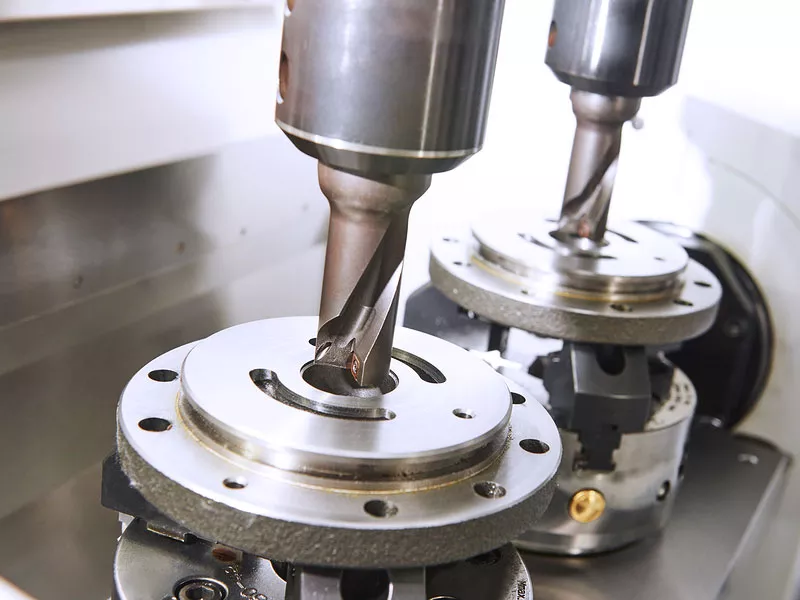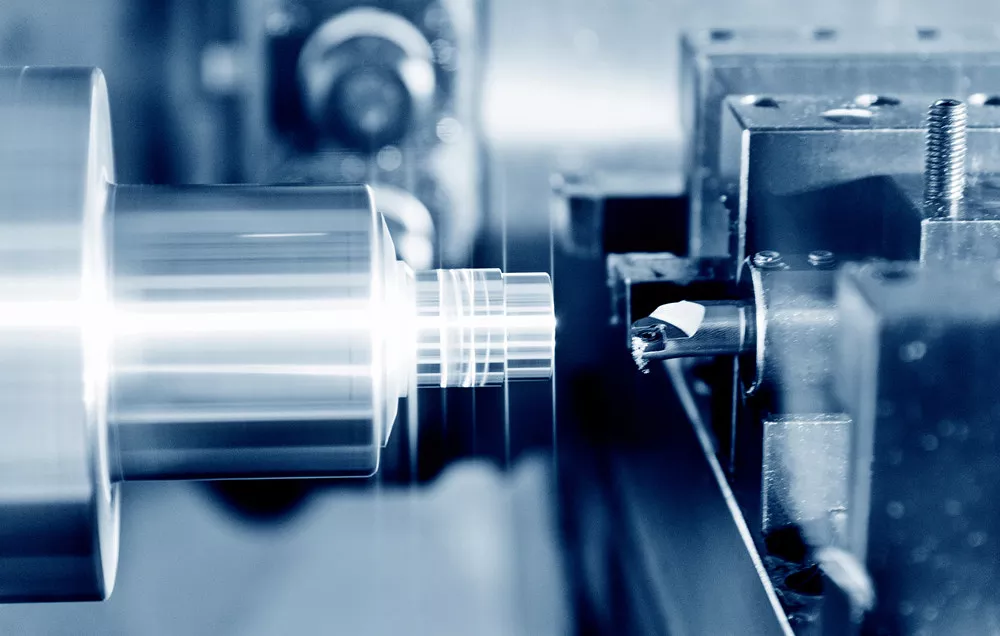CNC Machining Standards in Medical Device Manufacturing
Table of Contents
In today’s world, CNC machining technology plays a crucial role in the healthcare industry and medical field, transforming the manufacturing of medical devices and components. CNC machining can produce intricate customized medical components with exceptional precision and accuracy, ranging from surgical instruments to implants and prosthetics.
In an industry such as medical devices, where even the slightest mistake in a device can result in a serious medical malpractice claim, the machining process for medical parts must provide high tolerances and precise measurements. While general facilities for manufacturing metal parts must adhere to ISO 9001 quality management standards, facilities for processing parts for medical components and devices must comply with medical device manufacturing management standards. This article focuses on CNC machining standards for medical components and device parts.
A higher standard of manufacture is demanded in machining medical components than that required in common industry standards. Along with ISO 9001 quality management standards for general metal part machining, additional standards must be adhered to for medical components.
According to the International Standards Organization (ISO), companies engaged in the design, development, processing, handling, distribution, implementation, or servicing of medical components must demonstrate consistent adherence to customer requirements, as well as relevant regulatory mandates for medical devices and services. Medical CNC machining is an industry subject to extensive regulation owing to the crucial role of the components produced. The following regulations and standards must be observed to guarantee quality and safety.
The U.S. Food and Drug Administration (FDA) regulates medical devices and equipment to ensure their safety and effectiveness. Medical CNC fabrication companies must comply with FDA regulations regarding device classification, labeling, and design controls.
ISO 13485 Certification is an international standard that outlines the requirements for a medical device quality management system (QMS). It is a qualification standard specifically designed for the medical industry. The text is already clear and concise, and it adheres to the academic writing principles.
Therefore, it does not need to be improved.The Medical Device Directive outlines the regulatory requirements for medical devices marketed in the European Union (EU). To comply with these regulations, medical CNC machining companies that sell products in the EU must abide by the guidelines that govern Good Manufacturing Practices (GMP).
These guidelines ensure that products are produced and controlled consistently to maintain quality standards. Medical CNC machining companies should adhere to GMP guidelines to ensure the safety and effectiveness of their products.
The ISO 9001 certification standard is the industry’s benchmark for quality assurance and production management. The ISO 9001 certification standard is the industry’s benchmark for quality assurance and production management. It governs every aspect of manufacturing, leading to a more cost-effective approach and easing the process of expansion whilst ensuring compliance with established standards.
Also, companies should strive for the ISO 5001 certification standard.ISO 5001 Energy Management is a standard utilized to gauge energy efficiency which helps determine the level of product quality. It provides guidelines manufacturers can use to improve their energy use efficacy, ultimately, driving overall competitiveness. Importantly, companies that adhere to this standard can significantly reduce manufacturing costs.
Furthermore, the more comprehensive ISO 14001 Certification Standard supersedes ISO 5001 as a quality standard. Combined with the ISO 5001 standard, it highlights the sustainable utilization of energy, which enables the manufacturers of medical components to reduce waste generation and total energy consumption. Any enterprise that meets the requirements of this quality standard has certainly incorporated ISO 50001 into its routine operations.
The Significance of CNC Processes in the Development of Medical Devices
Medical CNC machining produces precise components for medical instruments, equipment, and devices. This machining technology plays a critical role in the medical device industry. For instance, dentistry utilizes 5-axis CNC machining extensively to manufacture parts like ceramic crowns, titanium implants for dental implants, orthopedic implants, pacemakers, surgical tools, and diagnostic equipment. Creating precise medical parts in specific shapes and sizes can be achieved using various materials, such as metals, plastics, and ceramics.
These devices are crucial for diagnosing patients’ conditions and treating various medical ailments. With the increasing demand for personalized and customized medical devices, this type of machining is becoming more and more important in guaranteeing that patients receive optimal care.Medical CNC machining plays a pivotal role in the medical device industry by manufacturing top-quality medical components and devices that save and enhance lives.
It is crucial to select a CNC machining facility or machine shop
It is crucial to select a CNC machining facility or machine shop that specializes in producing medical components that meet all necessary standards in order to obtain excellent medical components and device parts.In order to fulfill the requirements, it is essential to select a machine shop equipped with 5-axis machining capabilities to manufacture the intricate geometries usually present in medical part designs. Certification and standards aside, these factors are critical for success. Moreover, Swiss machining equipment can process medical parts with minuscule dimensions and greatly enhance the precision machining of elongated round parts in large quantities. For example, the use of pediatric axial flow VADs with impeller diameters of a few millimeters and speeds of several thousand rpm necessitates heightened dimensional accuracy. Tolerances on Swiss machining equipment usually fall within the micron range.Moreover, implantable medical devices require assembly in a clean room. Thus, the machine shop must conform to ISO standards by establishing a clean room on its premises.
Anpllocnc is a dependable manufacturer of essential medical components for surgical instruments, medical device prototypes, and advanced CNC machining manufacturing. With years of experience, we strive to achieve the tightest tolerances and precision for every machined part. Our skilled machinists can customize designs to the highest standards for all areas of the medical industry. If you require CNC machining services, contact us today for a quote.


